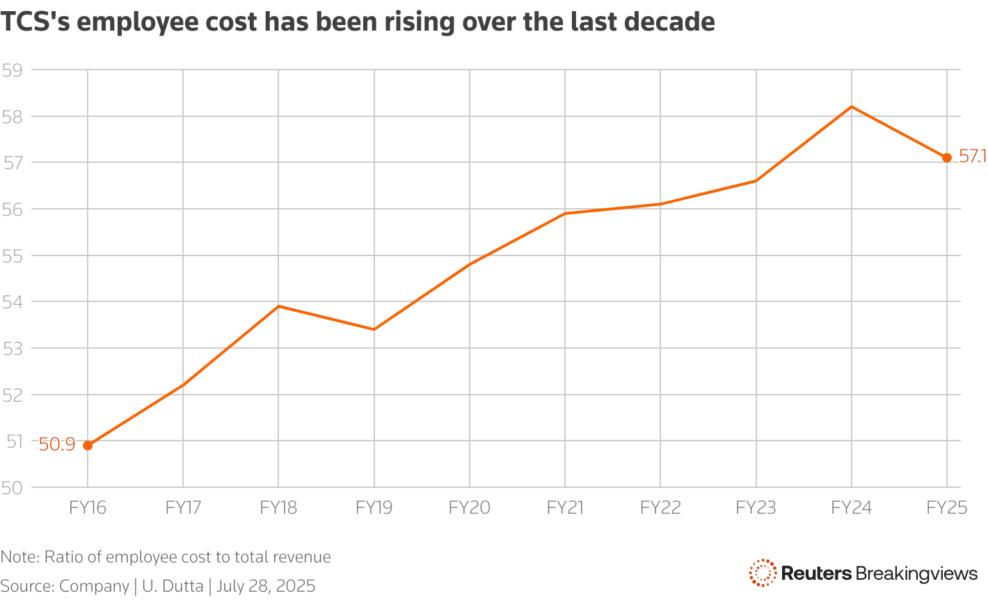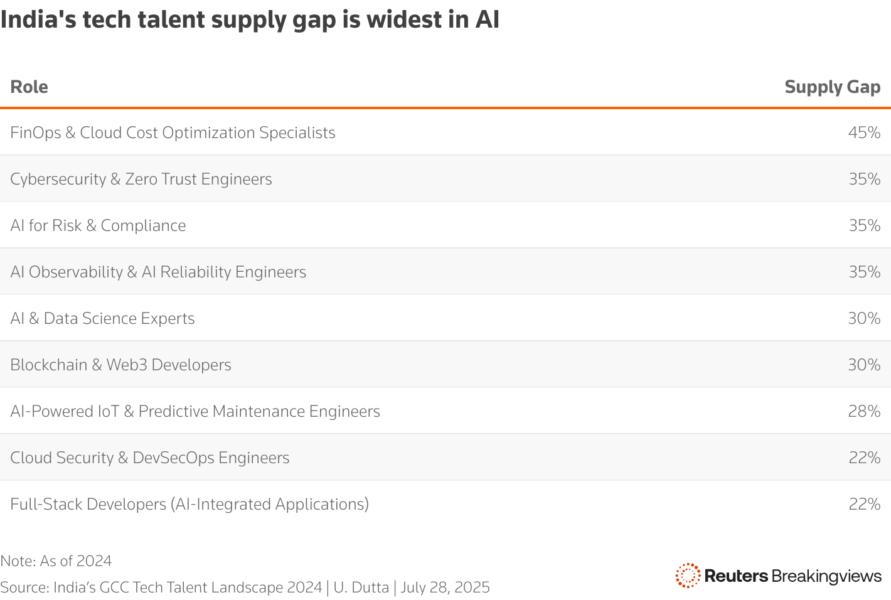India’s new IT playbook begins with layoffs
A reset is here for a flagship Indian industry. Shares in $130 billion Tata Consultancy Services TCS fell 1.8% on Monday after the IT outsourcing giant said it would cut 2% of its 613,000 employees in its current financial year. It's a rare large headcount reduction from the company, but the reluctance of investors to cheer the move may underscore fears over how artificial intelligence will reshape rather than trim the cost of doing business.
TCS CEO K Krithivasan on Monday sought to play down fears of an AI-induced jobs armageddon. The cuts targeting senior and middle management are, he told Moneycontrol in an interview, not because AI is producing 20% productivity gains and nor because it needs less people, it is the result of a skills mismatch.
It's true, AI may not be terrible for middle management in this people-heavy industry. Kamal Karanth, co-founder of Xpheno, a specialist staffing firm, told Breakingviews that the IT industry's old pyramid model featuring lots of low-cost employees at the bottom is being supplanted by a diamond shape, featuring a big middle layer.
TCS may also need fewer people. Its headcount ballooned during the pandemic years, rising 36% since 2020. Revenue per employee rose 20% over the same period but costs per employee rose by one quarter. The headcount reduction will trim employee costs by up to 4%, Piyush Pandey, an analyst at Centrum Broking estimates. That would be equivalent to 12% of TCS' bottomline for full year March 2025.

By contrast, investors applauded Accenture ACN in 2023 when it announced a 2.5% cut to its workforce along with lower revenue and profit forecasts, and bid the consultancy's shares up 6%. One reason to be warier of job cuts these days is that IT companies may hire fewer people but they will be higher-paid specialists: the $46 billion HCL Technologies
HCLTECH will pay "an elite cadre" up to four times the usual entry salary.
The uncertainty over the future of employment comes on top of tariff drama in IT companies' key U.S. market. TCS' revenue growth slowed in the two years to March 2024, and only inched up in the year to March 2025. Clients in North America are delaying deals and reducing discretionary spending. The AI boom may eventually result in a windfall of business. For now, the focus is on the costs.

Follow Shritama Bose on LinkedIn and X.
Follow Ujjaini Dutta on LinkedIn and X.
CONTEXT NEWS
Tata Consultancy Services will reduce its workforce by 2% in its current financial year, primarily at the middle and senior management levels, India's largest IT company said on July 27.
The move will eliminate roughly 12,200 jobs from the company's employee base of more than 613,000. It is part of TCS' strategic initiative to invest in new technologies, enter new markets, deploy artificial intelligence at scale, and realign its workforce model, the company said.
"This is not because of AI giving some 20% productivity gains. We are not doing that. This is driven by where there is a skill mismatch, or, where we think that we have not been able to deploy someone. It is not because that we need less people", TCS CEO K Krithivasan told Moneycontrol.
TCS shares closed down 1.8% on July 28.